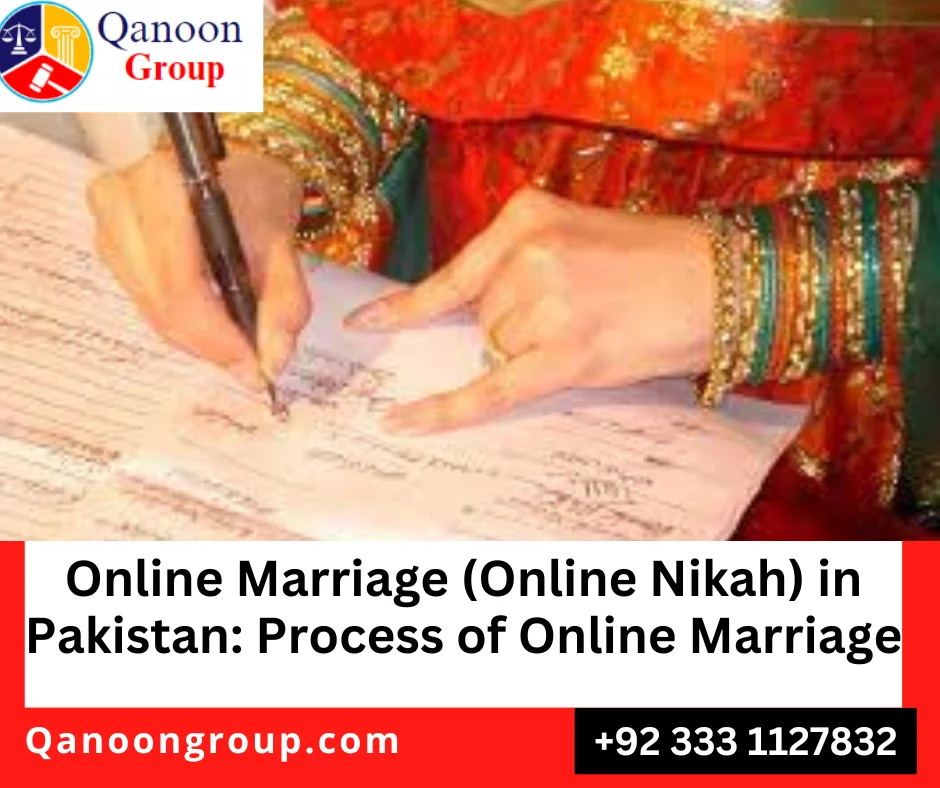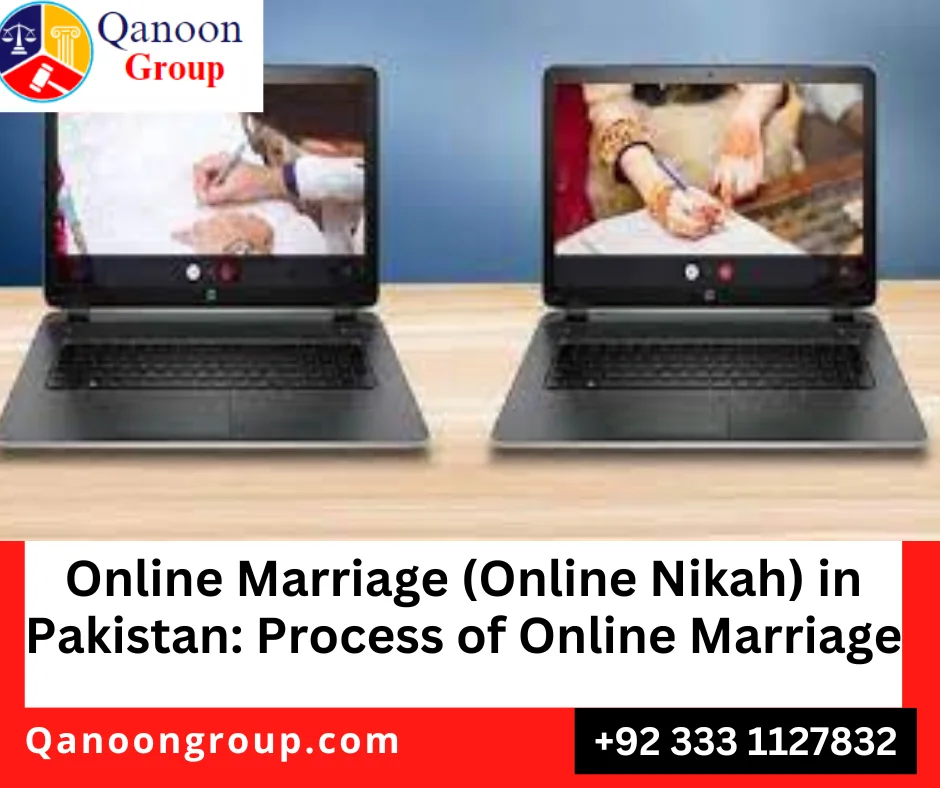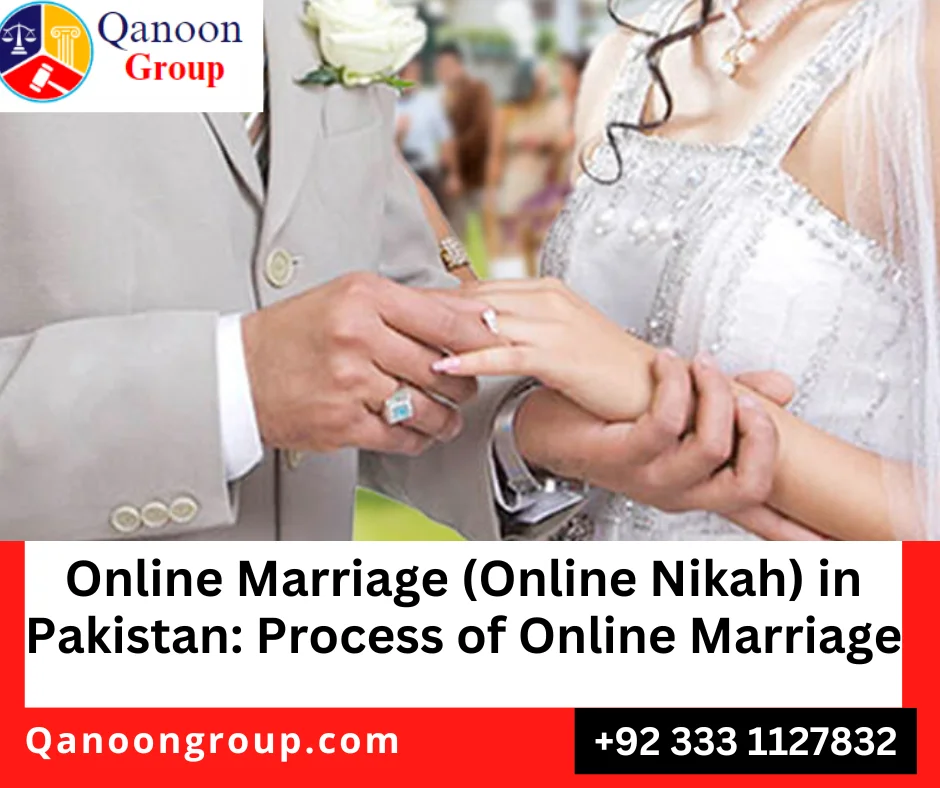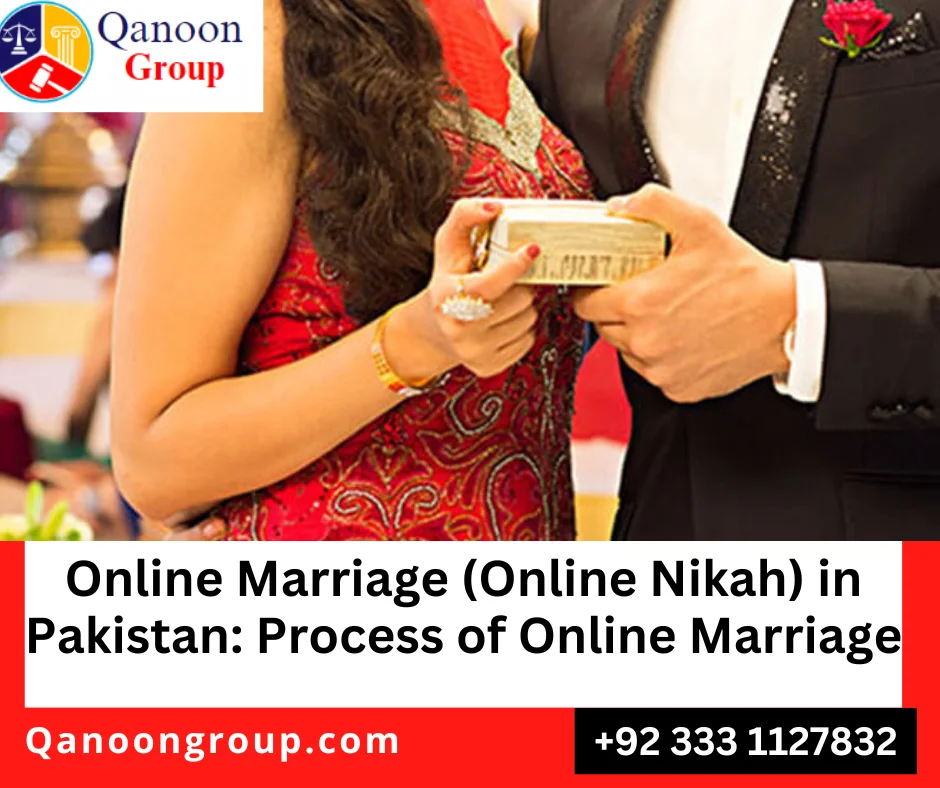Online Marriage (Online Nikah) in Pakistan: Process of Online Marriage
Online Marriage: A Contemporary Evolution of Traditional Islamic Matrimony
Online marriage, commonly known as online nikah, represents a contemporary evolution of traditional Islamic marriage, facilitated through digital platforms. This modern method enables couples to officially enter into marriage remotely, bypassing the need for a physical ceremony. The concept has gained traction due to technological progress and the enhanced global connectivity provided by the internet, offering a convenient and accessible option for those seeking to solemnize their union.
Online Marriage: Bridging Geographical Gaps for Pakistani Couples
The origin of online marriage in Pakistan can be traced back to the growing use of digital communication tools among a population that is both tech-savvy and dispersed globally. As Pakistani expatriates spread worldwide, the need for an accessible and convenient method to formalize unions across geographies became evident. Online nikah presents a viable solution, enabling families to partake in matrimonial procedures without the constraints of physical presence.
The Ijab-e-Qubul Process in Online Marriage
Unlike traditional marriage ceremonies, online marriage involves the use of audio-visual tools such as video conferencing platforms like Zoom or Skype. The essential components of a nikah—proposal (Ijab), acceptance (Qubool), and presence of witnesses—are fulfilled in a virtual space, duly adhering to Islamic legal requirements. The involvement of a qualified Islamic scholar or nikah registrar ensures that the rites are conducted properly, even in an online setting.
Factors Driving the Popularity of Online Marriage in Pakistan
The rise in popularity of online marriage in Pakistan can be attributed to various factors. These include the convenience of avoiding travel, reduced marriage expenses, and greater inclusivity for families and friends who are geographically distanced. The implications of the COVID-19 pandemic have further accelerated the adoption of online nikah as social distancing measures and travel restrictions prompted couples to seek alternative ways to formalize their unions.
Online Marriage in Pakistan: A Modern Solution for Traditional Practices
In summary, online marriage in Pakistan represents a seamless blend of tradition and modernity, providing a flexible and accessible method for couples to enter into matrimonial contracts. It exemplifies how cultural practices adapt in tandem with technological progress, reflecting the dynamic nature of societal norms.
How Does Online Marriage Work in Pakistan?
Online marriage in Pakistan, often termed online Nikah, has become increasingly accessible, leveraging technology to connect people across distances. The process initiates with preparation, where both parties must agree to the marriage and gather essential documents such as valid identification, proof of single status, and, if applicable, consent from guardians.
How Technology Facilitates Remote Participation in Online Marriage
The role of technology is pivotal in facilitating online marriage. Video conferencing platforms, such as Zoom or Skype, are commonly used to conduct the Nikah remotely. This allows the bride, groom, and witnesses to participate in the ceremony from different locations. The presence of two witnesses, who must be adults of sound mind, is mandatory to validate the Nikah.

The Khutbah and Ijab-e-Qubul in Online Marriage
Once the technological setup is secured, the ceremony itself can proceed. An authorized religious officiant or Nikah Khawan conducts the marriage. The officiant recites the Khutbah (sermon) and follows with the Ijab-e-Qubul (offer and acceptance) process, during which the bride and groom express their consent to the marriage. Both parties must be heard and seen by all participants, ensuring transparency and adherence to Islamic laws.
Reciting the Khutbah: The Start of the Online Marriage Ceremony
Once the technological setup is secured, the ceremony itself can proceed. An authorized religious officiant or Nikah Khawan conducts the marriage. The officiant recites the Khutbah (sermon) and follows with the Ijab-e-Qubul (offer and acceptance) process, during which the bride and groom express their consent to the marriage. Both parties must be heard and seen by all participants, ensuring transparency and adherence to Islamic laws.
Completing and Signing the Nikah Nama in Online Marriage
Legally, certain procedures must be followed to ensure the marriage is recognized by Pakistani authorities. Firstly, the marriage contract—known as the Nikah Nama—must be accurately completed with the necessary details and signed by the bride, groom, witnesses, and officiant. This document is then registered with the local Union Council to obtain a marriage certificate. It is advisable to consult with legal experts to ensure compliance with all statutory requirements.
Online Marriage: A Legally Sound Option for Global Couples
The online marriage process in Pakistan is increasingly equipped to handle hurdles such as time zone differences and communication barriers, ensuring that cultural and linguistic nuances are respected. Ultimately, through meticulous preparation and the adept use of technology, online Nikah offers a viable and legally sound option for couples seeking to solemnize their union despite geographical constraints.
Legal Recognition of Online Marriage in Pakistan
The recognition of online marriage in Pakistan involves a nuanced understanding of both legal frameworks and religious guidelines. Pakistan, being a predominantly Muslim country, aligns its marital laws closely with Islamic jurisprudence, which traditionally requires both parties to a marriage contract and witnesses to be physically present. However, with advancements in technology and changing societal dynamics, the concept of online marriage—or online nikah—has gained prominence.
Legal Framework for Online Marriage: The Muslim Family Laws Ordinance, 1961
From a legal standpoint, an authoritative reference can be found in the Muslim Family Laws Ordinance, 1961, which governs marriage and family-related issues in Pakistan. While the ordinance does not explicitly address online marriage, it emphasizes the importance of consent and the presence of witnesses for the validity of a nikah. Given this, the primary legal question revolves around whether virtual presence can substitute physical presence for these purposes.
Witness Requirements for Online Marriage under Islamic Law
In practice, Pakistani courts have shown openness to the concept of online nikah, provided that certain conditions are met. Both parties must consent to the marriage while their virtual presence and that of the witnesses are assured. The use of video conferencing tools can be seen as a technological extension of physical presence, thus fulfilling the requirement of witnesses as stipulated in Islamic law. Nevertheless, this recognition is not uniformly applied, and legal opinions can vary among different courts and jurisdictions within Pakistan.


The Council of Islamic Ideology’s Stance on Online Marriage
The stance of religious authorities is also significant in the context of online marriage in Pakistan. The Council of Islamic Ideology (CII), an advisory body that interprets Islamic laws in Pakistan, has opined that online nikahs are permissible as long as mutual consent and witness requirements are satisfied. This perspective provides a critical endorsement, aligning religious acceptability with legal validity. However, it is essential for individuals opting for an online marriage to ensure that the platform or service used for the ceremony adheres to these stipulations.
Summarizing the Legal and Religious Acceptance of Online Marriage
In summation, while not explicitly detailed in statutory laws, online marriage in Pakistan is being increasingly accepted within legal and religious frameworks, contingent on adhering to Islamic requirements of consent and witness presence. This evolving acknowledgment reflects the country’s adaptability to technological progress while retaining its religious and cultural values.
Requirements for Online Marriage in Pakistan
Online marriage in Pakistan, commonly referred to as online Nikah, is becoming increasingly popular due to its convenience and accessibility. However, there are specific requirements and prerequisites that couples must meet to ensure the legality and validity of their marriage under Pakistani law. Understanding these criteria is crucial for anyone considering this modern approach to matrimony.
Legal Age Requirements for Online Marriage in Pakistan
The first and foremost requirement for an online marriage in Pakistan is ensuring the legal age for marriage is met. According to Pakistani law, the minimum age for males is 18 years, whereas females must be at least 18 years old. Before proceeding with the ceremony, couples must provide valid identification documents to verify their ages, such as a National Identity Card (CNIC), a passport, or a birth certificate.
The Role of Consent in Online Marriage in Pakistan
Consent is another indispensable criterion for online marriage in Pakistan. Both parties must willingly and freely consent to the marriage without any form of coercion or undue influence. This consent is often recorded through a video conference, where the individuals verbally confirm their intentions in the presence of witnesses and a marriage officiant. The designated witnesses, typically two adult males, must also provide their identification and confirm their willingness to act as witnesses.
Providing Divorce Certificates for Online Marriage
In some cases, prospective couples may need to obtain specific approvals from legal authorities or religious bodies. For instance, if either party is a divorcee, they must provide a legal divorce certificate. Similarly, if a widow wishes to remarry, evidence of her previous spouse’s death and adherence to the ‘iddat’ period — a waiting period prescribed by Islamic law after a spouse’s death or divorce is mandatory. Additionally, any special permissions required by court orders or religious edicts must be duly acquired and documented.
Ensuring Compliance with Local Legalities for Online Marriage/Nikah
Before initiating the online Nikah process, it is also essential to check and comply with any regional or local-specific requirements, as these may vary and could impact the legal recognition of the marriage. Consulting with a legal expert or an authorized marriage registrar can clarify any ambiguities and secure adherence to all necessary legalities. By fulfilling these requirements, couples can ensure their online marriage in Pakistan is legally binding, culturally respectful, and seamlessly integrated into the fabric of their lives.
Necessary Documents for Online Marriage in Pakistan
When considering an online marriage in Pakistan, ensuring that all necessary documents are in order is imperative for the process to be legally recognized. The digital nature of the process does not lessen the importance of documentation; rather, it necessitates meticulous attention to detail and accuracy.


Verifying Identities with CNICs and Passports for Online Marriage
The primary documents required are identity proofs for both parties. These typically include National Identity Cards (CNICs) or passports, which serve to verify the identities and nationalities of the individuals involved. Additionally, copies of these documents need to be clear and preferably in a digital format, as they will be submitted electronically.
Essential Documents for Online Marriage: Marriage Certificate and Prior Records
Another critical document is the marriage certificate. For those entering a second marriage, a prior marriage certificate, along with a legally recognized divorce decree or death certificate of the previous spouse, where applicable, must be included. These documents verify the individuals’ marital status and confirm that they are free to enter into a new marriage.
Affidavit of Consent: A Crucial Requirement for Online Marriage
An affidavit of consent from both parties is also necessary. This document, which must be signed by the bride and groom, demonstrates that both parties willingly and knowingly consent to the marriage. For an online marriage in Pakistan, affidavits of consent may need to be notarized or verified by a legal authority to ensure their authenticity.
(NOC) No-Objection Certificate: Ensuring Compliance with Regional and Religious Norms in Online Marriage
Depending on regional or religious requirements, other documents may include a no-objection certificate (NOC) from the bride’s guardian, particularly if she is younger or her previous marital status needs verification. These documents ensure adherence to local legal norms and religious guidelines, culminating in a valid and recognized union.
Embassies and Consulates: Key Resources for Overseas Document Procurement
Obtaining these documents can generally be done through local government offices, embassies, or consulates for those residing abroad. In some cases, legal advisors or marriage facilitators specializing in online marriages in Pakistan may assist in streamlining the process and helping gather and verify required documents.


Application Procedure for Online Marriage in Pakistan
Applying for an online marriage in Pakistan involves a series of structured steps that ensure compliance with both legal and religious standards. The first step is to fill out the requisite online forms available on government and authorized websites. Couples are required to provide critical details such as names, national identity card numbers, and addresses. Additionally, scanned copies of identification documents are typically required. Ensuring the accuracy and completeness of these forms can significantly streamline the process.
The Role of Legal Advisors in Online Marriage Preparations
Once the forms are submitted, the next step involves setting up a virtual meeting with legal representatives or religious officials. These meetings are often facilitated through secure video conferencing platforms to verify the authenticity of the documents and the intention to marry. During these meetings, both parties might need to answer questions or provide additional information to bolster their application. Preparing for these meetings by consulting with a legal advisor well-versed in online marriages in Pakistan can be invaluable.
Securing Official Approval for Online Marriage in Pakistan
Following the virtual meeting, the official conducting the marriage will issue a preliminary approval. This approval indicates that the couple meets the fundamental criteria for an online marriage under Pakistani law and Sharia principles. It is vital at this stage to meticulously check all documentation and confirm the meeting details to avoid any potential discrepancies.
Role of the Qazi in Online Marriage Ceremonies
The final step in the application procedure involves a virtual Nikah ceremony officiated by a qualified Qazi or religious scholar. In this ceremony, both parties, along with their witnesses (who can also attend virtually), participate to fulfill the legal requirements of Nikah. Once the Nikah is solemnized, an official Nikah Nama (marriage certificate) is issued. This document is then sent to the relevant government office for registration.
Navigating the Bureaucratic Process of Online Marriage in Pakistan
Navigating the various procedural and bureaucratic requirements of an online marriage in Pakistan can be challenging. However, by being thoroughly prepared and understanding the necessary protocols, couples can complete the process. Consulting with experts who specialize in online marriage can provide additional guidance and ensure that all legal and religious obligations are met.
Costs and Timeframe of Online Marriage in Pakistan
The advent of online marriage in Pakistan has provided a convenient alternative to traditional marriage ceremonies, but it is essential to comprehend the financial and temporal implications of this process. Conducting an online marriage involves several costs, which vary based on the services and legal assistance availed. Typically, the fees include legal consultation, preparation of marriage documents, and registration with the relevant authorities.
Legal Consultation Fees for Online Marriage in Pakistan
Legal consultation costs can range from PKR 35,000 to PKR 50,000, depending on the expertise of the lawyer and the complexity of the case. This fee ensures that all legal requirements are met and that the marriage is valid under Pakistani law. Additionally, the preparation and notarization of essential documents, such as the marriage contract (Nikah Nama) and affidavits, can cost between PKR 10,000 and PKR 25,000. These documents play a crucial role in legitimizing the online marriage.
Expected Timeframe for Online Marriage Procedures
The time frame is another critical component. The entire process of online marriage in Pakistan, from the initial consultation to the completion of all formalities, typically spans between one to two weeks. This duration includes time for legal procedures, document verification, and the scheduling of the online Nikah ceremony. However, the timeframe may vary based on individual circumstances and the efficiency of the service providers engaged.

Enhanced Privacy in Online Marriage Ceremonies
Another significant benefit is privacy. Online marriage ceremonies can be conducted discreetly, offering couples a chance to celebrate their union without the sometimes overwhelming scrutiny of a large social gathering. This privacy can be particularly appealing to individuals who prefer a more intimate setup or those who wish to avoid traditional societal expectations.
Advantages of Online Marriage
One of the primary advantages of opting for an online marriage in Pakistan is convenience. With the ability to conduct marriage ceremonies online, couples no longer need to be physically present in the same location, making it easier for those living in different cities or countries to get married. This is particularly beneficial in long-distance relationships where travel might be restricted or financially burdensome.
Disadvantages of Online Marriage
Despite the convenience and cost benefits, online marriage in Pakistan is not without its challenges. One of the primary concerns is the potential for legal complications. While online marriages are recognized, ensuring compliance with all legal requirements can be complex, and any oversight may lead to legal issues down the line. It is crucial to consult with our legal experts to navigate this process correctly.
